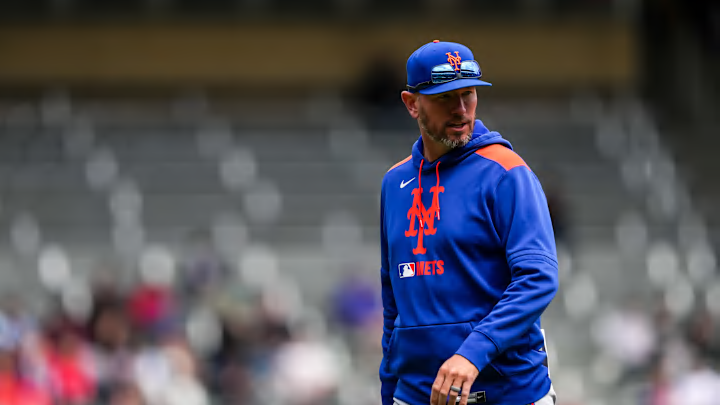Of all the coaching firings, retirings, and step downs this week, none felt more of a surprise than Jeremy Hefner. The longtime New York Mets pitching coach who survived multiple regimes, even the transition from the Wilpons to Steve Cohen, finally met his maker. He was one of multiple coaches who won't be back next year.
Well-regarded and likely to land a gig in some capacity somewhere, it’s the end of an era in Queens. Hefner represented the franchise’s desire to continue the tradition of the Mets winning via the mound. The Mets move on at an appropriate time when it made sense to rehaul the franchise in several ways, starting with the coaching philosophies.
If the Mets were going to keep Hefner, the best argument wasn’t what he has done but what he will finally get a chance to accomplish.
Jeremy Hefner hasn’t had a fair chance to work with a surplus of moldable, young pitchers
If ever there was a time you wanted to have confidence and stability with the pitching coach, it’s 2026. Nolan McLean is a lock for the Opening Day roster. We should get a heavy dose of Brandon Sproat and Jonah Tong as well. Other exciting young pitchers are coming up, too.
It has been a long time since the Mets have successfully developed a pitcher at the major league level. David Peterson is the closest thing to a homegrown success story. Hefner was there right from the beginning of his major league career. Of course, it doesn’t all fall on Hefner. He doesn’t get his chance until they reach the big leagues.
Hefner hasn’t had a whole lot of chances to create an ace. Tylor Megill failing to establish himself as an unstoppable force isn’t a mark against Hefner. Megill was someone who has already surpassed expectations as a big league pitcher even if it isn’t quite what we thought it would be back when he debuted in 2021.
A counterargument to this could be that the Mets want a voice they can commit to with these young pitchers. You don’t want to keep Hefner around for another year only for someone else to come in and change things up drastically in 2027.
So why did the Mets fire Hefner? He didn’t really give them any choice.
The Mets pitching staff fell apart late in the year and gave them no choice but to move on
Back to Peterson. If he’s the model of what Hefner creates from scratch, it’s a bit disappointing. Peterson was never an ace-in-waiting but he was a first round draft pick and someone we figured could have a good role in the rotation for several years. It took him until the 2024 season to start living up to those expectations. He continued the good vibes in 2025 only to crash late in the season.
He was hardly the lone victim. A universal collapse by Mets pitching in the final weeks falls on Hefner. When it’s a couple of arms underperforming, you can blame the players exclusively. Not in this case. Peterson, Kodai Senga, and Clay Holmes (to a lesser extent) saw their performances fall. Struggles of players like Ryan Helsley and Ryne Stanek who got worse under Hefner’s guidance didn’t help his case either.
Mets pitching had a 4.74 ERA in the second half of the season. Bad enough for 25th place, it was a stark contrast from the way things started. Their 3.56 ERA in the first half was ranked 4th in MLB.
We learned in 2024 that how you finish matters a whole lot more than the way things start. Francisco Lindor played his way into the MVP conversation. A strong postseason earned Stanek and Jesse Winker a new deal from the Mets. With how badly the Mets pitchers did to end the year, there was no choice but to move on.
